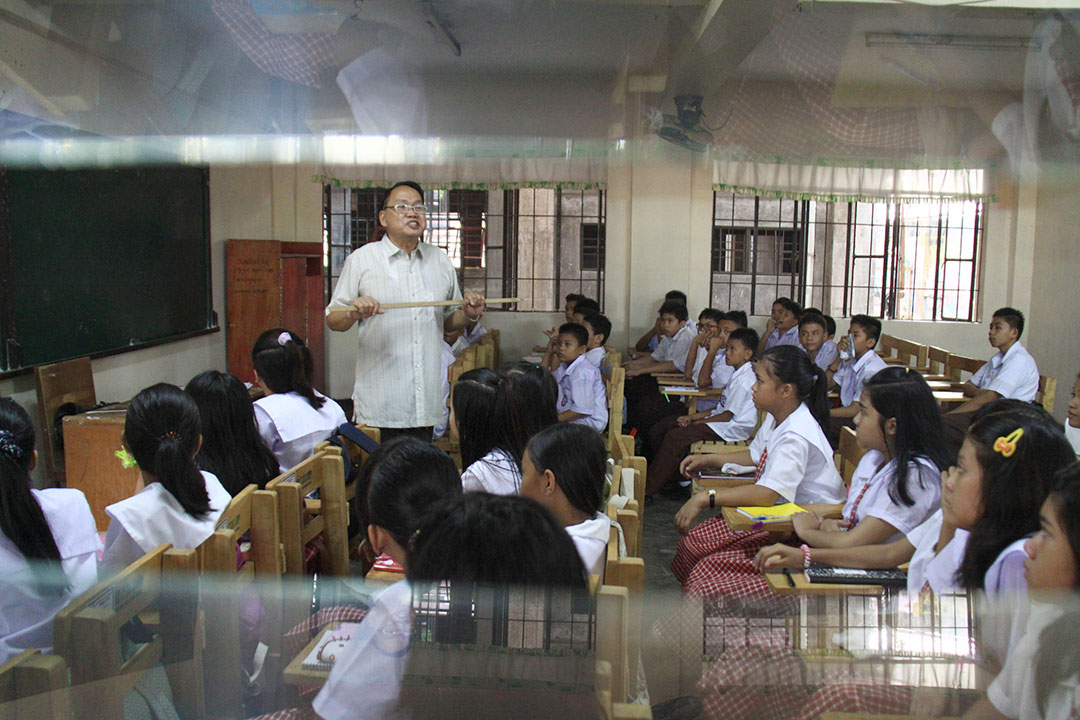Marcos creates education cluster to unify gov’t solutions

By Kyle Aristophere T. Atienza, Reporter
PHILIPPINE President Ferdinand R. Marcos, Jr. on Tuesday approved a proposal by a congressional commission to create a Cabinet cluster that will unify efforts to fix education issues including budget gaps and a skill mismatch among teachers.
The Cabinet cluster for education, which the Second Congressional Commission on Education (EDCOM II) proposed, will be composed of officials from the Department of Education (DepEd), Commission on Higher Education (CHED) and Technical Education and Skills Development Authority (TESDA).
Also among its members are officials of the Labor and Budget departments, Education Secretary Juan Edgardo M. Angara told palace briefing after meeting with the President.
The cluster would formulate a 10-year integrated national education and workforce development plan, said EDCOM II Executive Director Karol Mark R. Yee, who presented the proposal during a meeting with Mr. Marcos earlier in the day.
The targets and budgets of the agencies involved should be in line with the plan on a yearly basis, he said.
DepEd could not address education issues on its own, he said, citing the need for agencies to work together.
A national coordinating council for education was formed in 2000 — almost a decade after a proposal by EDCOM I — to mitigate the risk of nonaligned education subsectors such as DepEd, CHED and TESDA.
But it was abolished seven years later after having failed to do its job.
“We have different things happening but [we’re] not working together. We need to fix that,” Mr. Yee said.
The Philippine Business for Education (PBed) said the cluster’s creation comes at a time when the country is grappling with a “learning crisis.”
“The need for an interrelated, whole-of-nation approach to education involving DepEd, TESDA, CHED and other government agencies has never been more urgent, as we work to bridge the gaps from basic education to employability,” it said in a statement.
It urged the cluster to come up with data-driven decisions on education, “guided by independent assessment mechanisms.”
The Philippines ranked 77th out of 81 countries in the 2022 Programme for International Student Assessment for student performance in mathematics, reading and science. Filipino students performed worse than the global average in all categories.
“We believe this Cabinet cluster and the appointment of an education czar can set the motion for the much-needed long-term vision and plan for education and human capital development of the country,” Pbed said.
Mr. Angara said the Cabinet cluster for education would tackle personnel issues including the lack of guidance counselors, who are crucial amid increasing cases of bullying in schools and a skill mismatch among teachers.
Mr. Yee noted that most science teachers in the Philippines did not finish a course related to science. “How will you teach something you didn’t [study] yourself?” It is the same for other subjects, he pointed out.
State colleges and universities offering education courses should ensure that their programs are aligned with the needs of DepEd schools, he said.
Mr. Yee also flagged the lack of guidance counselors in schools, citing 5,000 vacant positions.
“Masters in guidance counselling is not offered across the country,” he said. “The average graduation number is 300 per year, so it will take us 14 years to fill all the vacancies under the current setup.”
“This is why coordination among agencies is so important. The Commission on Higher Education plays an important role.”
Mr. Angara said the President has ordered DepEd to ensure that there are enough guidance counselors who can give learners “lifeline” support.
Meanwhile, the DepEd chief said they would start procurement activities for school buildings even before the passage of the national budget to address classroom shortages.
The classroom shortage has more than doubled to 159,000 from 75,000 a decade ago, he said. “So, whatever we’re doing, it’s not very effective. There are things that we should look at in terms of speeding up procurement.”
The agency would also promote the adopt-a-classroom program, which entitles private sector participants to tax deductions, he added.



